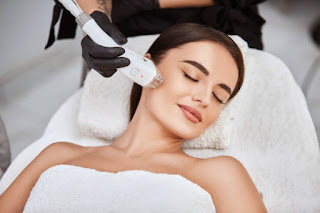Breast augmentation pain and swelling: what’s normal and how to reduce it
Breast augmentation:
After breast augmentation surgery, it's normal to feel pain and have swollen breasts.The body uses swelling to protect the area and help heal damaged tissue.
You can learn more on this page about:
Bosom increase and expanding
Bosom increase and agony
How much swelling is typical following breast augmentation?
After surgery, your breasts will feel tight, and swelling will peak three to four days later.Breast Enlargement Injections in Islamabad However, you may experience some swelling for up to three months following surgery, and the implants may not fully settle in for up to six months.
You have large implants—this could indicate that the breast and muscle tissue has been stretched—smoking—smoking can slow down the healing process—or you have certain pre-existing medical conditions, such as diabetes—and you have had implants under your chest muscle. You can learn more about how to reduce the risks of surgery by reading this.
How long after breast augmentation surgery does swelling last?
After surgery, the majority of patients observe that any swelling has diminished by approximately three weeks.On the other hand, some swelling is normal for up to three months.Here, you can learn more about what to anticipate during recovery.
Is it common for breast augmentation patients to experience uneven swelling?
Certain individuals experience lopsided expanding in the chest after expansion medical procedure and this is totally ordinary as it's most probable because of the bosoms recuperating at various rates.In most cases, this will go away on its own within a few weeks.
Uneven swelling, on the other hand, could be a sign of something more serious, like blood or fluid accumulating near a breast wound.Talk to your surgeon as soon as possible if you are concerned or experience significantly more pain or swelling on one side of your chest than on the other.
How can I reduce the swelling in my abdomen following breast augmentation surgery?
Gravity may cause your breast tissue swelling to spread to your abdomen after your surgery.
By doing the following, you can reduce abdominal swelling:
drinking a lot of water
strolling around when you feel ready to do as such
halting or exchanging torment drug in the event that your bulging is extreme — opiate pain relievers can cause stoppage, and it's significant you address your specialist prior to rolling out any improvements to your aggravation prescription
addressing your specialist about taking stool conditioners assuming that stoppage is making your stomach swell
Stomach expanding is totally ordinary and ought to sort itself out inside a couple of days.However, the effects of medication and lack of movement can slow digestion and lead to constipation, so it's normal to feel bloated for longer.
How can I reduce post-surgery swelling?
Talk to your surgeon about taking arnica supplements, as this herb can be applied to the skin to treat swelling and bruising. Wear a supportive surgical bra, which gently compresses the breasts to reduce swelling.
If the tops of your breasts continue to appear swollen approximately three months after surgery, this could be due to the implants themselves. Exercising too vigorously can actually impede the healing process.Implants may not fully settle in place for up to six months.
Pain and breast augmentation:what's normal:
Following your breast augmentation, your chest will feel tight and sore.Below your breasts, you may also feel pain in your ribs.
After your surgery, your surgeon will assist you in managing the initial pain by:
administering local anesthetic through a pain pump, which slowly and continuously delivers pain medication to the breast incision site Your surgeon may also prescribe narcotic painkillers in addition to muscle relaxants and anti-inflammatory medications.
You should be able to reduce the amount of pain medication you take to over-the-counter painkillers within two to three days, which you can take as needed.
In addition to the initial pain of surgery, you may also experience the following sensations in your breasts or nipples:
Burning sensations, shooting pain, tingling, and numbness




Comments
Post a Comment